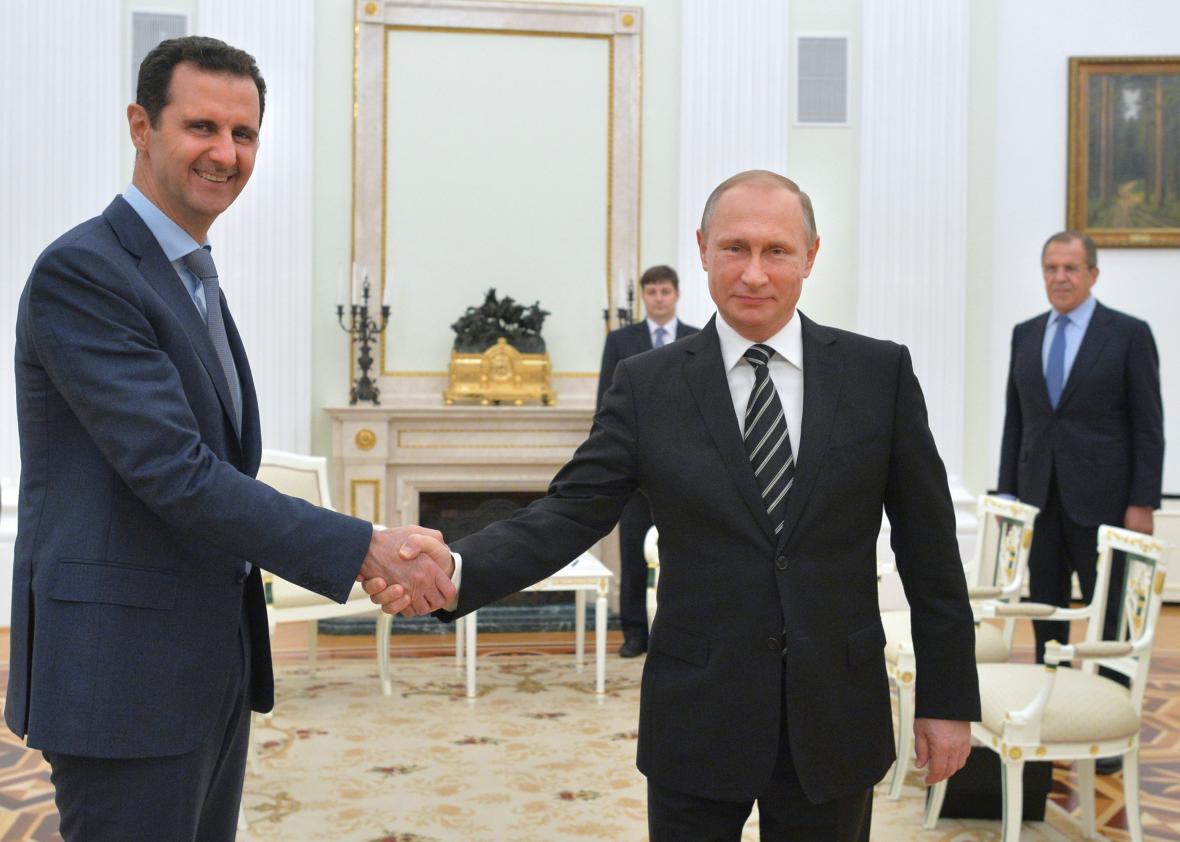Bashar al-Assad flew to Moscow on Wednesday for an unannounced meeting with President Vladimir Putin to thank him for Russia’s air campaign. “I wanted to express my huge gratitude to the whole leadership of the Russian Federation for the help they are giving Syria,” Assad said. “If it was not for your actions and your decisions the terrorism which is spreading in the region would have swallowed up a much greater area and spread over an even greater territory.”
Assad has reason to be grateful. Just a few months ago the situation looked dire for the Syrian leader. He was losing territory in northwestern Syria to anti-government rebels, who were starting to push into the traditional heartland of his Alawite sect. He was forced to make strategic withdrawals from several areas, publicly admitting that his military was short on supplies and manpower. At the time, it was widely suspected that Putin’s government was running out of patience with Assad and was becoming more open to the idea of a negotiated settlement that would see him removed from power.
A few months later, as we move toward the end of the Syrian civil war’s bloody fifth year, the situation looks quite different. Under Russian air cover and with reinforcements from Iranian ground forces and Hezbollah, Assad’s forces are regaining areas previously lost to the rebels in a massive counterattack.* The United States, meanwhile, appears completely disengaged from the war against Assad, focusing its attention on the fight against ISIS well to the east. While officially, the Russian government maintains that its intervention is more about maintaining security in Syria and containing terrorism rather than backing Assad himself, it’s hard to see Wednesday’s meeting as anything other than a vote of confidence.
Whether it was the result of Iranian lobbying or Putin simply sensing a strategic opportunity, the Russian president reacquired his enthusiasm for the war in Syria over the past few months and Assad likely owes his presidency, if not his life, to him.
*Correction, Oct. 21, 2015: This post originally misspelled Hezbollah.
